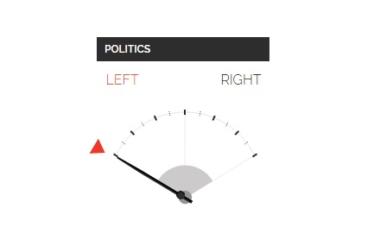A fair few weeks ago now, I met up with Rob Wilson, the former minister for civil society. He was angry with Oxfam, which he said had been party political in its views, because it advocated against what the charity called “an extreme form of capitalism”.
Wilson's views are available in full in an interview on our website. I found it fascinating to talk to him because he had looked at the same evidence as me, and genuinely seemed to want the best for charities, but had drawn such different conclusions.
On the narrow issue of Oxfam I didn’t agree with Wilson the first time he said it, and I still don’t now. Charities can dislike almost every Conservative policy without being party political, especially if those policies harm the poor. And the Tory party doesn’t own capitalism, nor does the Labour party own opposition to it.
And in any case, Oxfam isn’t opposed to capitalism. It’s opposed to a form of capitalism that permits too much wealth to flow to shareholders as opposed to employees, and to those whose wealth is unearned. This is good economic sense, and I can make sound arguments that a more fair and effective intra- and international redistribution of resources would lead to faster economic growth, and make almost all of us richer.
But I don’t think Wilson’s wider point can just be dismissed. If he’s representative of a certain mindset in his party (and the nation) then perhaps we need to find a way to address his concerns. Because the sector needs to be able to work with the government in power.
I don’t think there’s any doubt that the sector is very left-wing. If you look at charity workers’ profile on YouGov, you’ll notice the dial actually falls off the scale to the left.
I don’t think there's anything wrong with this. I don’t think it is surprising or really fixable. One of the principle reasons the sector exists is for the amelioration of systemic disadvantage. This is ideological. And it’s a primarily left-wing ideology.
The left tends to favour greater state control and redistribution of resources from rich to poor. The right argues that this is less important than individual freedom of action, and that total economic activity is more valuable.
The right is correct in my view that a rising tide lifts all boats, and that excess redistribution, in the form of taxation, stifles people’s willingness to graft. The trouble is that if this approach is taken too far it can lead to resources concentrated in the hands of too few. This can tend to create an environment of systemic disadvantage in which many people are not given sufficient opportunity to contribute, and benefit from contributing.
The charity sector is about ensuring those people get a better chance. It doesn’t always do so by arguing for political change, but this is one of the main ways to remove the systemic disadvantage.
Does it matter if the sector’s left wing?
There are two potential issues. One is that ideology can turn into dogma, and stops charities finding the best solutions to social issues. The other is tribal. It prevents the sector doing business with people can help its beneficiaries.
One charity sector worker got in touch with me proactively to outline his experience of working in the immigration sector. In his case, at least, both these issues were at play.
“The idea that the charity sector is free from political bias is ludicrous,” he told me. “My organisation wasn’t just left-wing, it was hard left-wing. That extended to other charities in the sector, too. The natural assumption among many of my peers was that we were there to smash the system and tear down all borders.
“It was all untethered from reality, and although I valued my work I was relieved when I got a new job somewhere which didn’t feel like a recruiting ground for the SWP.”
I’m sure this isn’t typical, but it is worrying. I think we can see that charities' natural lean to the left has the potential to make life harder for beneficiaries.
What do the Conservatives think?
Charities might argue that they aren’t opposed to the Conservatives in principle, just all their policies, but you can see why this argument doesn’t cut much ice in some corners of Westminster. I think many Tory MPs certainly see the sector as anti-Tory, and the perception is almost as bad as the reality.
Like it or not, the Tories run the country (for now, at least). If we want the government’s civil society strategy to come to anything, we have to make a case that allows the sector to exert influence over right-wing thinkers.
Nor is it just politicians. This is quite a right-wing country on the whole – less so than the US, more so than France and Northern Europe. This is reflected in the fact that taxation is lower in the UK than in almost any other developed economy (which is maybe one reason why giving is higher).
The right wing tends to see charity as a good thing, but as something which is done for the poor by the rich. It’s in favour of voluntary redistribution and efficient service delivery, but that’s often where it stops.
Perhaps this is part of the problem with charity campaigning. The Tory party says it is fine with charities sharing the experience of their beneficiaries. But they believe charities are primarily there to minister to the less fortunate. It is not their job to influence economic policy. It is best summed up in the famous quote from Dom Helder Camara - "When I give food to the poor they call me a saint. When I ask why the poor have no food, they call me a communist."
I wonder if when Tory politicians say they have no problem with campaigning, they really mean they have no problem with advocacy. They believe that charities are allowed to make sure the rules are applied correctly, or suggest amendments to the rules, but not to say that we need new rules, or a new game altogether.
What are the solutions?
One way is to argue in terms of economics. If you can prove that poverty costs everyone money, and it’s efficient to reduce it, you've basically won. It’s that argument, I suspect, which makes social impact bonds such a popular method of funding among Conservative politicians.
Another is to argue in terms of aspiration. The idea of an individual’s opportunity to strive and succeed is deeply embedded in the right. If that opportunity is not present then a right wing state is mandated to intervene.
And I think it’s helpful to talk about fairness, rather than inequality. It feels as if the British people don’t mind inequality all that much, but they do really dislike unfairness. I suspect this is probably pretty true of all cultures.
In the end it’s tricky. You have to stay true to yourself and if you think government policies are bad and unfair you have to say so. But we cannot be surprised afterwards if charities are not popular in parliament.
Related articles










